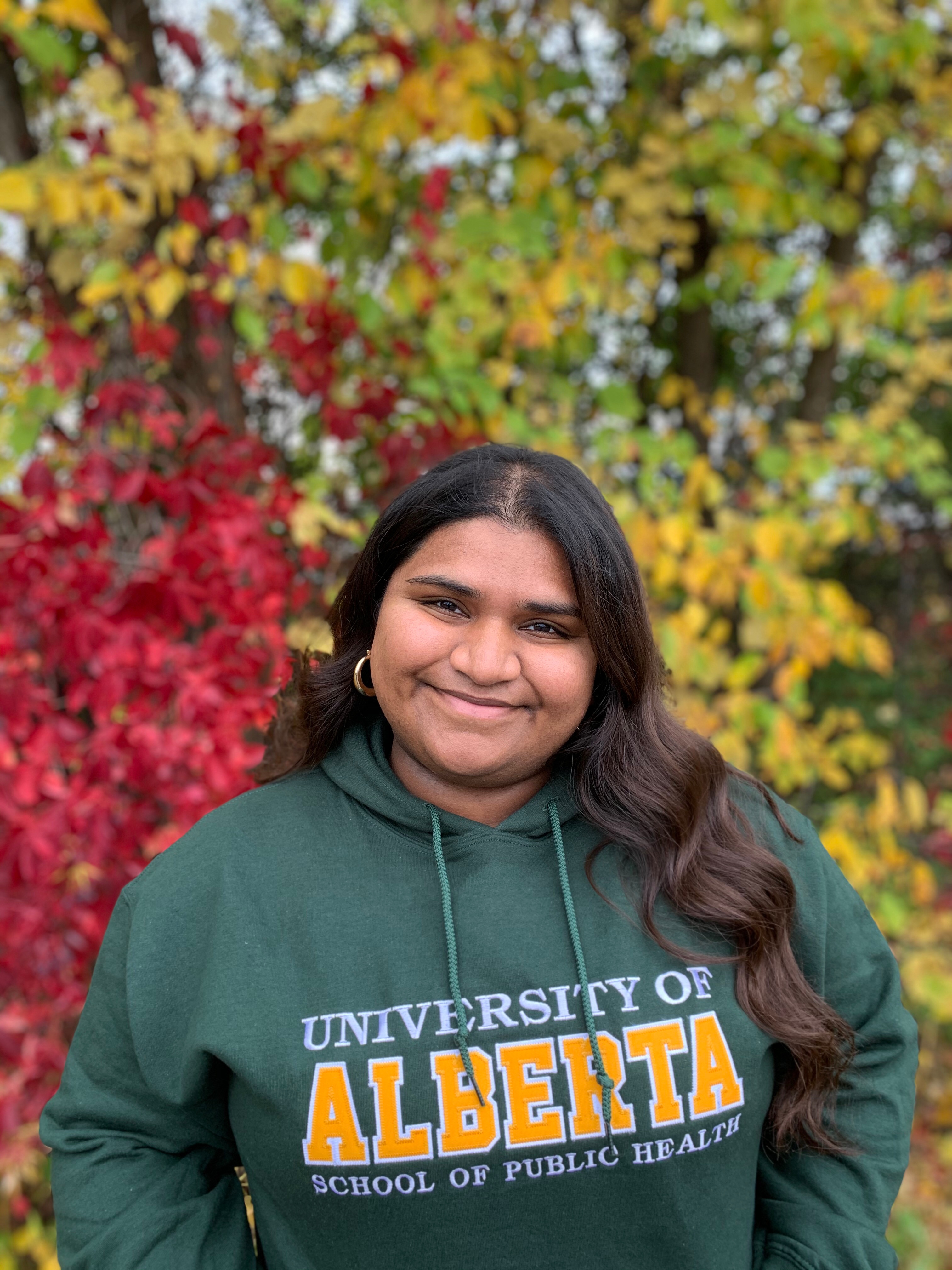Student profile: Bridging the gap between Indigenous research methods and epidemiological research
Hersharon Sandhu - 17 May 2021

First-year master of science student Danika Goveas wants to bridge the gap between Indigenous research methods, epidemiology and health policy, all while working collaboratively with Indigenous communities.
“Epidemiological research has a quantitative focus. Even social epidemiology works with statistics and statistical analytical software. Whereas Indigenous communities each have their own unique research methodologies that take more of a qualitative approach. They work with focus groups, sharing circles and storytelling, which I think is really impactful,” explained Goveas.
Goveas was inspired by one of her mentors in her undergraduate program to explore how access to health care can be improved to support Indigenous peoples' health and wellbeing. This led her down the path for her first research project, looking into the rates of tuberculosis amongst Inuit communities in Nunavut.
When looking into graduate programs, Goveas connected with Stephanie Montesanti, associate professor, School of Public Health and instantly knew she had found the ideal supervisor. Montesanti is a co-principal investigator with the Indigenous Primary Health Care and Policy Research (IPHCPR) network in Alberta, under which Goveas now supports various research projects. Goveas has received a seed grant through IPHCPR to support her thesis research in Indigenous primary health care and policy evaluation.
Goveas understands that as a non-Indigenous person and second-generation settler, she will never truly understand Indigenous experiences and the trauma they have endured intergenerationally, so her focus is to work with communities to improve health policies affecting them. “It was always about listening to their perspective and voices, and collaborating to promote health equity and improved health outcomes.”
While she works to bridge the gap between Indigenous research methods and quantitative epidemiological research, Goveas stresses that it’s not just about listening to marginalized voices, but actually implementing their priorities and needs in the work. “Any research practice that puts Indigenous leaders and community members at the helm of research being conducted within their community is a step in the right direction,” she explained. “Through partnerships and collaborative work, these communities are co-researchers in projects directly impacting them. The communities have access to their own data and information, so they can contribute and meaningfully engage with the health policies that affect them.”
As she wraps-up her first year at the School of Public Health with a 2020 Alberta SPOR SUPPORT Unit Graduate Studentship award, Goveas aims to use her knowledge and research experience throughout her career. “When I’m working with patients and hearing their concerns, I know that some of them are going to be harder to tackle because of the bigger, systemic issues within our health-care system,” shared Goveas. "Having a background in public health and knowing that we have to make transformations in policy to make adequate changes in our health-care system is going to be incredibly valuable.”
STAY IN THE KNOW
Stay in the know with news and updates from the School of Public Health.